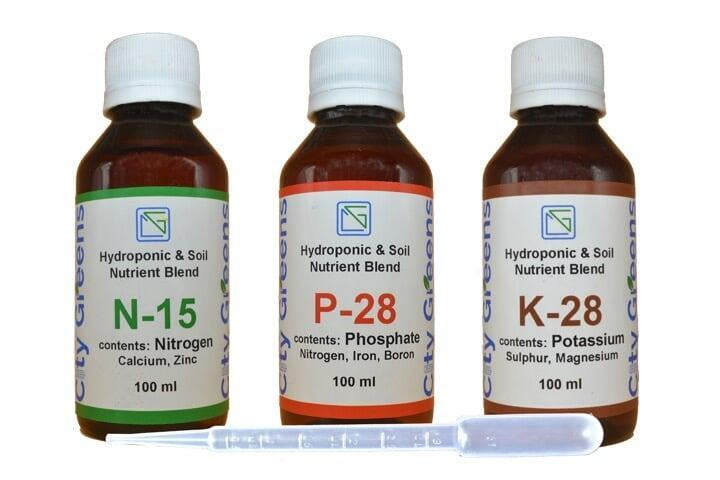When it comes to us at CityGreens, the part of the Organic vs Inorganic debate that impacts us most is w.r.t the plant nutrition. This is one topic that we have studied in depth. Through this article, we would try to address a few general queries that we get regarding Organic vs Inorganic plant nutrition.
Organic vs Inorganic nutrients
Organic nutrients
If you would recollect the chemistry classes from your school days, Organic chemistry dealt with the study of carbon. Organic plant nutrition is any form of a nutrient-rich source that either originates from a living source containing carbon or naturally occurs in nature. Examples may include bone meal, fish excreta, seaweed, cow dung, vermicompost, or naturally occurring mineral salts etc.
Contrary to intuition and popular belief, bone meal, fish excreta, and seaweeds are not allowed in Organic production in India as per current NPOP guidelines.
Inorganic nutrients
Inorganic plant nutrition is any plant nutrition additive that originates from non-living sources or does not naturally exist in the nature. Inorganic nutrients are nutrients synthesised in factories, example minerals or fertilisers.
Mechanism of nutrient absorption in plants
When it comes to plants, they can absorb nutrients only in the form of ions (which are devoid of carbon and hence inorganic). So for a plant, a nutrient is a nutrient; it does not matter whether it originated from an organic source or an inorganic one. All the nutrients must first be broken down into inorganic ions before plants can absorb them. With this clarity, the question that arises is, is there then no difference between organic and inorganic nutrients. Let's try to find the answer to this query by developing an understanding of how these nutrients work.
Mechanism of action of organic nutrients
In an Organic nutrient, the ions are bound to compounds through chemical bonds. These bonds get broken down slowly by bacteria, earthworm, and other microorganisms, ensuring a slow release of ions for the plant root to uptake. This release process happens in damp conditions and temperatures of above 50 F. Due to this mechanism, there are several distinct advantages and disadvantages of using Organic Nutrients.
Advantages of organic nutrients
- The use of Organic nutrients improves soil texture and composition due to the presence of Organic matter.
- Since nutrients get released at a slow rate, a lower amount of nutrient leeches into the ground. Overall less number of application (or lesser quantity) is required.
- The chances of burn caused by excessive nutrition are abysmally low while using Organic Nutrients.
Disadvantages of organic nutrients
- Since nutrients are released slowly, plants may get less amount than they need and take longer to grow.
- It is difficult to pinpoint exact nutrient composition (available for plant intake) in the organic nutrients. Thus some specific nutrient deficiencies may occur in plants fed solely on Organic Nutrients.
- Organic nutrients usually cost more than their inorganic counterparts.
- At lower temperatures, the efficacy of nutrients may decrease significantly. This phenomenon happens because the process of ion release from Organic nutrients needs higher temperatures.
Mechanism of action of inorganic nutrients
In inorganic nutrients, ions are released rapidly (there are now some slow-release inorganic nutrients as well) and become available for plants to uptake irrespective of temperature and humidity levels.
Advantages of inorganic nutrients
- The ions are precisely measurable and available for uptake readily. Thus the results are quick and effective.
- Inorganic nutrients cost lower than their organic counterparts.
Disadvantages of inorganic nutrients
- Since the ions are released fast, many applications may be required at regular intervals.
- A lot of nutrients can get leached into the groundwater through the soil, thus having an adverse environmental impact (when used in ground-based farmland at commercial scale).
- A higher dose of inorganic nutrients may lead to an excess of nutrients, thus leading to leaf burn in plants.
Parting Note
